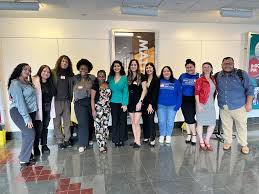The Importance of Class in Today’s Society
In a world that often emphasizes wealth and status, the concept of class holds a significant place in shaping societal interactions and perceptions. While class traditionally referred to one’s economic standing, it has evolved to encompass a broader range of attributes that define an individual’s social position.
Class is not solely determined by financial resources but also by education, manners, cultural interests, and behavior. It reflects how individuals present themselves to the world and how they are perceived by others. A person’s class can influence their opportunities, relationships, and overall quality of life.
One key aspect of class is etiquette and social graces. Politeness, respect for others, and proper conduct are often associated with higher classes. These qualities not only facilitate smoother interactions but also contribute to a sense of refinement and sophistication.
Education is another crucial component of class. Access to quality education can open doors to better career prospects and higher social standing. Those with higher levels of education are often seen as more knowledgeable and respected in society.
Cultural interests also play a role in defining class. Appreciation for art, literature, music, and other forms of cultural expression can indicate a certain level of sophistication and refinement. Engaging with cultural activities can enrich one’s life and contribute to a sense of belonging to a particular social class.
While class distinctions exist, it is essential to recognize that individuals should not be judged solely based on their class background. Everyone deserves respect and dignity regardless of their economic status or upbringing. Building a more inclusive society requires understanding and empathy towards people from all walks of life.
In conclusion, class remains a relevant concept in today’s society, influencing how individuals are perceived and how they navigate social interactions. By embracing the values of respect, education, cultural appreciation, and empathy, we can strive towards a more harmonious society where everyone has the opportunity to thrive regardless of their class.
“Defining CLASS in the Context of Early Childhood Education”
“Exploring the Role of ‘Class’ within Teachstone’s Framework”
4. “Deciphering
- What does the class tool assess?
- What does class mean in early childhood Education?
- What is a class in Teachstone?
- What do we mean by class?
What does the class tool assess?
The class tool serves as a comprehensive assessment mechanism that evaluates various aspects of an individual’s social and economic standing. This tool delves beyond just financial resources to consider factors such as education, cultural interests, manners, and behavior. By examining these multifaceted components, the class tool provides insights into one’s overall social position and helps to paint a more nuanced picture of an individual’s place in society.
What does class mean in early childhood Education?
In the context of early childhood education, class refers to the grouping of young children based on their age or developmental stage for instructional purposes. Classrooms in early childhood settings are typically organized to cater to specific age groups, allowing teachers to tailor their curriculum and teaching strategies to meet the unique needs and abilities of each class. Class placement in early childhood education plays a crucial role in promoting social interaction, cognitive development, and overall learning readiness among young learners. By creating a supportive and engaging classroom environment within each class, educators can foster a sense of community, encourage peer relationships, and provide targeted instruction that nurtures children’s growth and development during these formative years.
What is a class in Teachstone?
A class in Teachstone refers to a structured and interactive learning environment where educators engage with students to promote positive interactions and facilitate learning. In Teachstone, classes are designed to support the development of effective teaching practices and create a nurturing space for students to thrive academically and socially. Educators in Teachstone classes utilize research-based strategies and tools to enhance student engagement, promote active participation, and foster a supportive learning community. By focusing on creating meaningful connections between teachers and students, Teachstone classes aim to cultivate a positive educational experience that empowers learners to reach their full potential.
What do we mean by class?
The concept of class encompasses more than just economic status; it also includes education, manners, cultural interests, and behavior. Class defines an individual’s social position, reflecting how they present themselves to the world and how they are perceived by others. It goes beyond financial resources to encompass a range of attributes that shape societal interactions and opportunities. Understanding class involves recognizing the nuances of etiquette, education, cultural engagement, and respect for others that contribute to a person’s overall social standing and quality of life.

